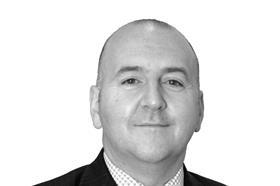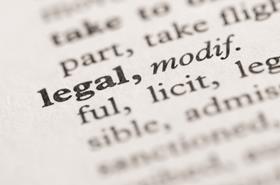Ted Lowery considers the lessons of an application to substitute one expert for another
The case
- TQ Delta LLC vs Zyxel Communications UK Ltd & Anor [2019] EWHC 1597
- Before Recorder Douglas Campbell QC
- In the Patents Court
- Judgment delivered 19 June 2019


The facts
During 2017 Delta commenced proceedings against Zyxel claiming infringements of certain patents owned by Delta that related to the operational standards for international telecommunications. The court made directions including for a trial in September 2019 that would consider Delta’s claim for damages in consequence of patent infringements by Zyxel. The parties exchanged financial experts’ reports on 7 December 2018: from Mr Pampinella on behalf of Zyxel and from Mr Bezant on behalf of Delta. Mr Bezant’s report raised an economic benefits approach (EBA) argument.
In May 2019 Zyxel served a report by a second financial expert, Dr Lynde, which included his views on the impact on Delta’s claim for damages of what were known as SSPPUs (smallest saleable patent-practising units). In June 2019 Zyxel issued an application seeking leave to replace Mr Pampinella with Dr Lynde. Zyxel also applied for permission to adduce evidence from a broadband technology expert, Dr Peeters, in order to address Mr Bezant’s EBA argument and for an extension of time in which to serve Dr Peeters’ report.
Delta resisted the proposed report from Dr Peeters on the ground that it would go beyond the factual evidence already submitted. Delta also contended that permission to substitute Dr Lynde for Mr Pampinella should be refused, alternatively that it should be conditional on Mr Pampinella making himself available for cross-examination at trial and Zyxel disclosing Mr Pampinella’s associated paperwork. Delta further objected to any evidence from Dr Lynde dealing with SSPPUs on the grounds that this gave rise to an entirely new argument.
The issue
Should Zyxel be granted permission to adduce evidence from Dr Peeters and to rely unconditionally upon Dr Lynde’s report?
The decision
The judge observed that the major difficulty in dealing with the application concerning Dr Peeters was that Zyxel had not served a copy of the report from Dr Peeters on which it intended to rely.
While in answer to the judge’s enquiry, Zyxel was able to explain that the current draft of the report was between 25 and 50 pages long and was expected to be ready by late June, this did not give Delta any firm indication of the report’s contents, and the only information before the court about Dr Peeters was his CV, which Zyxel did not rely upon in its submissions. It was therefore difficult to access the degree of necessity for Dr Peeters’ evidence.
The judge accepted Delta’s submissions that the application was made late, given that Mr Bezant’s report had been available since December, and that the need to address new expert evidence would affect the trial timetable and might risk the September trial fixture, something that Zyxel had not addressed in its application by including any proposals for adjusting the timetable to accommodate Dr Peeters’ report. The judge therefore dismissed Zyxel’s application to adduce evidence from Dr Peeters.
On the second application the judge said that there was nothing like the “strong evidence” of expert shopping that would in itself have disposed of the application. He noted Zyxel’s candid admission that it wanted to replace Mr Pampinella because Dr Lynde had different qualifications. Allowing the second application, the judge concluded that it would be a harsh result if Zyxel were forced to rely upon an expert it no longer wanted to use.
Regarding Delta’s conditions, although Dr Lynde’s report frequently cited Mr Pampinella’s evidence, the judge did not think it necessary that the latter be cross-examined, as the merits of his evidence would be a matter of submission. Equally, it was sufficient that Mr Pampinella’s report would be available at trial without any associated paperwork.
The judge found that the SSPPU issue did amount to a substantial new argument that should not be allowed at this late stage, and therefore Dr Lynde’s report would be admitted but with the SSPPU paragraphs struck through.
Commentary
Albeit concerning telecoms rather than construction issues, this judgment shows how the courts will approach expert evidence manoeuvrings. The outcome of both applications was influenced by the proximity of the September 2109 trial: applications to vary expert evidence will have better prospects if made sooner rather than later.
Another key finding is that the court is unlikely to be sympathetic if it is unable to gauge what the new expert is going to say and how any new evidence will affect the trial timetable. Zyxel’s application to adduce evidence from Dr Peeters was not helped by the prevailing uncertainty over the likely scale, content and timing of the promised report.
Ted Lowery is a partner in Fenwick Elliott




























No comments yet